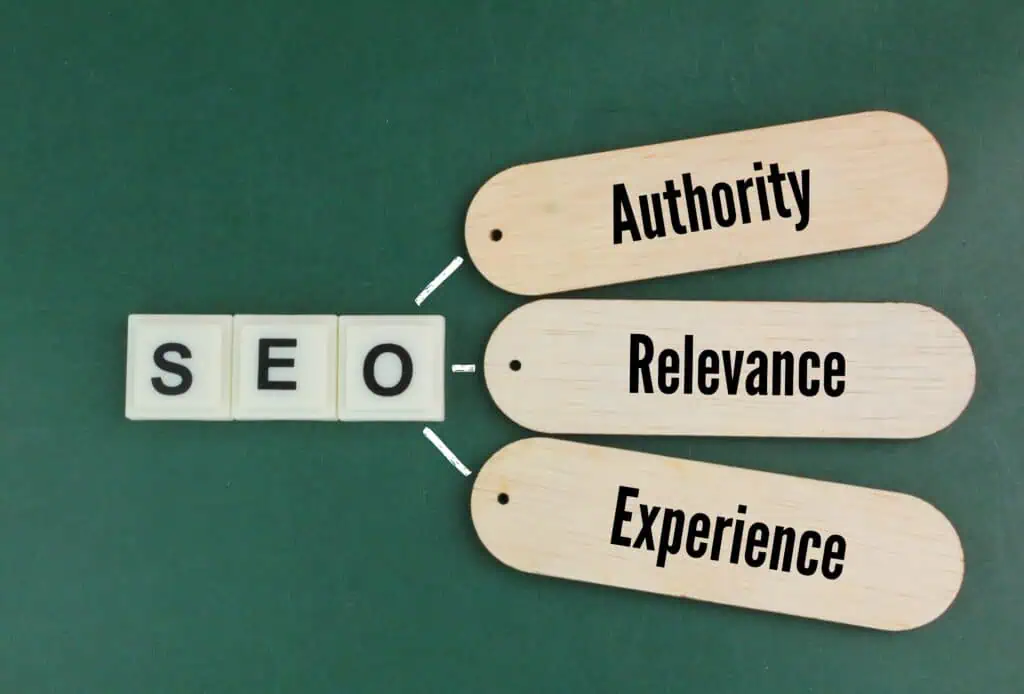In the ever-evolving landscape of search engine optimization (SEO), one principle has gained significant attention: E-A-T, which stands for Expertise, Authoritativeness, and Trustworthiness. Introduced prominently in Google’s Search Quality Evaluator Guidelines, E-A-T is critical for ensuring your content ranks well in search results while meeting user expectations.
This article will explore what E-A-T is, why it’s important, and how you can leverage it to improve your website’s discoverability.
Understanding E-A-T in SEO
E-A-T represents the framework Google uses to evaluate the quality and relevance of content on websites. While it is not a direct ranking factor like keywords or backlinks, E-A-T plays a crucial role in how Google perceives and prioritizes content, especially for industries dealing with sensitive information like health, finance, and legal matters.
Here’s what each component entails:
1. Expertise
This focuses on the knowledge and skills of the content creator. Google assesses whether the person or entity responsible for the content demonstrates a deep understanding of the topic.
- Why it matters: Accurate and comprehensive content builds trust with users and aligns with search intent.
- How to improve: Hire subject matter experts to create content and showcase their credentials on your website.
2. Authoritativeness
This measures whether your website or brand is considered a go-to source for information in its niche or industry. Authority is often established through backlinks, mentions from credible sources, and a consistent track record of valuable content.
- Why it matters: Users and search engines prioritize information from trusted sources.
- How to improve: Build quality backlinks, collaborate with reputable sites, and engage in thought leadership activities like guest blogging.
3. Trustworthiness
Trust is about making users feel confident in your content, website, and brand. This includes factors like transparency, security, and credibility.
- Why it matters: Trustworthiness directly impacts user engagement and satisfaction, which can influence rankings.
- How to improve: Use HTTPS for a secure browsing experience, include clear contact information, and maintain an accessible privacy policy.
Why is E-A-T Important for SEO?
A Focus on User-Centric Content
Google’s primary goal is to provide users with high-quality, relevant content. By aligning your website with E-A-T principles, you ensure that your content meets these expectations.
Impact on YMYL (Your Money or Your Life) Pages
E-A-T is especially critical for YMYL pages, which cover topics that can impact a user’s health, financial stability, or safety. For example, a medical blog must display a high level of expertise and credibility to rank well in search results.
Improved Search Rankings
Websites demonstrating strong E-A-T are more likely to rank higher in search results. Conversely, poor E-A-T can lead to lower visibility and traffic.
How to Improve E-A-T on Your Website
Implementing E-A-T doesn’t require a complete overhaul, but it does demand a strategic focus on quality, transparency, and authority. Here are actionable steps to boost your E-A-T score:
1. Highlight Expertise
- Add author bios with credentials to all content.
- Feature contributions from industry experts.
- Regularly update your content to reflect the latest insights and research.
2. Build Authoritativeness
- Acquire backlinks from reputable sources in your industry.
- Publish original, in-depth content that others will reference and share.
- Engage with your audience through forums, webinars, and social media to establish your brand as a thought leader.
3. Enhance Trustworthiness
- Use HTTPS to ensure secure connections.
- Include clear contact details, privacy policies, and terms of service.
- Encourage user reviews and display testimonials prominently.
E-A-T in Action: Case Study
Take a health and wellness blog as an example. If the site publishes articles on medical conditions or treatments, Google will scrutinize whether:
- The authors have medical credentials.
- The content cites reputable sources.
- The website provides transparency about ownership and purpose.
A blog that adheres to these principles is more likely to rank higher than one with anonymous authors and outdated information.
Common Mistakes to Avoid with E-A-T
Lack of Author Attribution
Content without an identified author can harm your perceived expertise and trustworthiness.Outdated Information
Failing to update old content can lead to a loss of credibility and rankings.Overlooking User Experience
A poorly designed site undermines trust, regardless of how good your content is.
The Future of E-A-T in SEO
As search engines evolve, E-A-T will remain a key factor in content evaluation. Emerging technologies like AI-driven search and voice assistants are pushing Google to prioritize content that is not just keyword-rich but genuinely helpful and authoritative.
Conclusion
E-A-T isn’t just a buzzword in SEO—it’s a foundational principle that helps bridge the gap between user expectations and search engine algorithms. By focusing on Expertise, Authoritativeness, and Trustworthiness, you can create a website that ranks well and resonates with your audience.
If you’re ready to enhance your website’s E-A-T and improve its search discoverability, start by auditing your content and implementing the strategies outlined in this guide. Over time, your efforts will lead to stronger rankings, better engagement, and increased trust with your audience.





